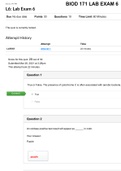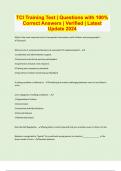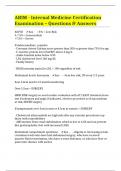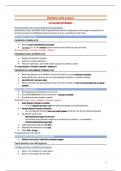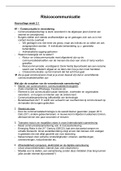Tips for answering the question:
-have an overview of the extract in your intro
-make sure you read the extract as a mini text of itself so consider the narrative progression
-don’t over analyse individual words instead look for repeated patterns and techniques
-explicitly reference the genre and show an understanding of it
-consider these questions:
Who holds the power?
What type of power does it symbolise?
How does this person maintain this power?
Are there any examples of rebellion to this power?
What is the author’s attitude towards this power?
Addressing each AO:
● AO5: argue a single viewpoint, refer to different readings, refer to critical positions,
refer specifically to ideas from the Critical Anthology, cite critics or focus on your own
independent viewpoint.
● AO4: aspects that typify the genre, features of the genre and how they are met or
subverted
● AO3: We are interested in contexts which arise naturally from the texts and tasks.
Literary, critical and cultural contexts will arise
● AO2: shaping of literary texts is what writers do, they make decisions about how their
text is structured, the form it will take, the settings that will be used, the voices that
tell their stories or deliver their messages and the language that is selected.
Students are likely to make more telling comments about structural and
organisational issues, voices and settings than about lexical items.
● AO1: how students construct their arguments, how they express their ideas, how
accurately they write, how they use language and appropriate terminology and
concepts, the ways students show independence and creativity through their
arguments and written expression.
Approaches to section A:
● Establish an overview.
● Focus on the narrative within the extract and get a feel for its narrative shape.
● Identify some significant political aspects at play within the extract.
● Write topic sentences that identify the features you want to discuss.
● Cover the entire extract.
● Attention must be paid to any contextual information given at the start
● Students should read the extract through at least twice.
● Don’t annotate on first read
Notes from top band answer feedback:
● immediately seeing the political and social protest element of female oppression as
central to the passage.
, ● shows excellent understanding of the gender issues at play here and integrates
astute comments on Kwame Kwei-Armah’s authorial methods
● Detailed and well written discussion
● selects another part of the extract about which to develop ideas about gender
inequality
● the text is used thoughtfully to support ideas.
● makes some good points about the complexity of political protest and how the fight
‘can never end’.
● ideas here are developed in a sophisticated way, showing understanding of the text
and the genre.
● excellent discussion at the end of the extract about the danger of the oppressed
becoming the oppressors
● a very mature response to the task
GENRE CONTEXT:
The elements that might be explored, depending on each individual text, include:
● the type of the text itself, whether it is a postmodern novel, science fiction, satirical
poetry, historical and political drama
● the settings that are created as backdrops for political and social action and the
power struggles that are played out on them. Both places (real and imagined) and
time settings will also be significant here
● the specific nature of the power struggle, the behaviours of those with power
and those without, those who have their hands on the levers of power
● the pursuit of power itself, rebellion against those with power, warfare
● the workings of the ruling political classes
● corruption, conspiracy, control
● the connection of the smaller world to the larger world
● the focus on human organisation: domestically, in the workplace, in local and
national governments
● gender politics and issues of social class
● the structural patterning of the text, how political tensions are heightened and
perhaps resolved
● the way that language is used in the worlds that are created
● the way that political and social protest writing is used to comment on society,
particularly the representation of society at particular historical periods
● ultimately how political and social protest writing affects audiences and readers,
inviting reflection on our own world.
● Social and political protest writing comments on society and fundamentally is about
issues of power and powerlessness, and the nuances to this dynamic
● the main concern of the genre is its protest to injustice or societal norms
○ Older examples of texts which protest against societal norms are more covert
because of the very real fears of persecution, Shakespeare’s political
messages for example are often concealed in the nuances of the narrative
rather than overtly stated as critique of the monarchy may have led to
persecution of a severe kind

